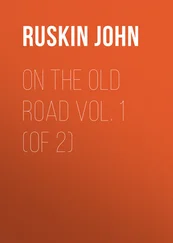Finally we rose and looked at the St. Barbara’s branch blooming in the window. It was such a perfectly wintry thing to bring these tiny pink buds into bloom, encircled by their pointy side leaves. And the hyacinths, which shot their white roots into the water like flames. They had been placed a way off because of their strong fragrance. But they pulled even further away of their own accord. All of their hyacinth air slipped out through the cracks in the windows and the gaps in the house. It left us at a loss. Only the flower remained. But outside, too, it was a flowery evening, and the room itself seemed slowly to have pulled away. Not long ago it had been right in the middle, as we ate the Niedl and the torte. . We looked back, disconcerted. The tablecloths were gone now. A small, plain jardiniere stood on the table. A door opened quietly, and a boy’s voice sang out invitingly: “Father, the magic lantern is ready.” Oh, children, children had everything they wanted here. We leapt up and took our places, grateful and ready, in the roomy entrance hall. We hadn’t even noticed its other purpose as we entered. “Children, you have to move in further,” said the man, and lifted Gretchen together with her chair into the even darker background. And then we heard the glass plates slowly begin to turn. And we were inside, in the world of the pictures and the colors. Our own movements were transformed into fitful, angular advances, or cautious retreats. The red was like walking in the hottest sun, holding mother’s hand, eyes closed. Red was also the furthest, most extreme cold: there the moon became the sun. But the sun itself had lost its power. Blue was the color of the water. And yellow, since time immemorial, had been the color of a thousand dandelions. That was the emblem of this color. A mill wheel began to turn. A hammer pounded on its anvil. Seasons emerged as if out of books, with elves and dwarves. Summer was piled high on wobbling wagons returning to town, a sight that inspired confidence. And there was winter. Children rode sleds into the white of the screen and disappeared. It was strange, almost upsetting.
The whole thing didn’t last any longer than it takes a Sunday guest to drink his little glass of liqueur in the park in town below, or a teetotaler to preach his devout praise of abstinence in the large gymnasium. We stood up, greatly enriched but slightly diminished, as is always the case when something ends so suddenly. After all, the magic lantern was brand new, so it didn’t have so many slides. It was also possible that we, with our senses so occupied, had been unable to retain everything. And since this lovely afternoon was drawing to an end, it was the natural time to part. They brought two pastries from the Christmas parlor, ladies with raisin eyes for us to take home with us. And they fetched our coats and helped us into them as carefully as if we had been their own children. We bid farewell to each and all, almost a bit wistfully. Then the door was closed. Then we were on the steps, then in the snow on the street. The four faces followed us part of the way. .
How well joy has equipped us, endowing us with hearing, sight, and taste, indeed, with basic things, simple, pure life, traveling a path that it must travel anyhow. And yet joy is like a flowering tree, or like winter twigs covered in snow, or like the bare contours of late autumn. It does with us what it will, indeed, many things. .
The morning sun was shining on the flowers. In the dewy air a young bird was contentedly fluffing its feathers. In the room inside, the light was reflecting like golden water.
A bouquet stood proudly on the table. The floor with its fantastical inlays, the chairs with their pattern like a purely drawn breath, even the small mementos in the glass case were filled with an ardent hardworking spirit, and they shone from within.
Once a young girl entered and looked around. “How nice it is, when a room is so peaceful that you only have to stand in the doorway to have a rest,” she thought, and went back to her work.
On the gravel outside, everything was moving at a slow trot. A steady old voice was calling the hens together. The pigeons flew to the windowsill; a turkey let out its rolling tones. You could hear the birds pecking, the grains falling, and so you knew about the earthenware bowl without even having seen it.
Everything looked joyful, still eagerly bound up in blooming. Even the blind old woman calling and feeding the hens outside was no exception. She knew the mountains. Those paths were still under her feet, even here in her new home. Sometimes she would sing psalms, or recall the names of rare stones, or circle around the house with her walking stick. Today she had also shelled countless fruits of the garden, and set the table there herself.
And the young girl kept bringing out porcelain or a wrapped-up set of silverware. The old woman even set the glasses just where they belonged.
Eventually she went inside, too. Now nothing seemed to be lacking. It was time to give in to that joy. For an hour it was silent. It seemed as if there were no one at all in the house. And the maid stood upstairs in her attic room in front of her tiny mirror and tried on her new starched apron from Christmas. Then she quickly neatened her bureau, which had to double as a table in a little nook like that, straightened the chair, and opened the window again. You could never know. . And this room, too, was left alone again. And around that same time the others were leaving their houses, too, nicely done up in bonnets that shaded their eyes or in finely pressed summer dresses, in gray, in black, in ivory. But if you expected cheerful people to have cheerful faces, you’d be wrong. Their silent faces wear such solemn expressions that you could almost think they were sad. They have the thoughtful, expectant look of the man who has done everything, and is prepared for what is to come.
Still, it’s true that the conscience of this house was not entirely clear. To be sure, it stood there sparkling inside and out, polished to a shine like a goblet. And a snow-white goose had been plucked, and the poetry of the kitchen had eventually transformed this goose, along with the young pea pods and the other first fruits of the garden, into a pâté that all the guests would crave. It was meant to look like a small, casual, gentlemen’s breakfast, but to taste more delicious than any midday meal. It should all be gone within the hour, that feast that had taken a day to prepare. For even what was already clean, spotlessly clean each and every day, had been taken up again as if it were dusty and rusted: so that finally brass shone like fire, and silver like fathomless glass. And at the end? Ah, the end of such a breakfast is truly one of the most enduring memories; people cherish it more than we think.
We should make nothing of the fact that one person’s face wears a lost expression, that another looks severely harsh, that a third can be recognized at once by his clumsy gait, a fourth by his voice, which is higher than anything you might compare it to, and seems to come out of the ground like the voice of a cricket. We can’t just go and say: “I don’t want to put in too much effort for this man. Much less for that one.” At bottom, everyone is worth endless effort, and that goes for us as well as for them. And that the things themselves should finally attain their earthly clarity. . As the sound of the bell seems to long for the striking of the hour, so every house longs for its own festive time.
But a small and wicked, malicious pleasure was lying in wait. It was already reflected large and small in the garden globes. But whenever someone turned around to find it in reality, it would laugh, saying over and over: “I’m not there. .”
Читать дальше












